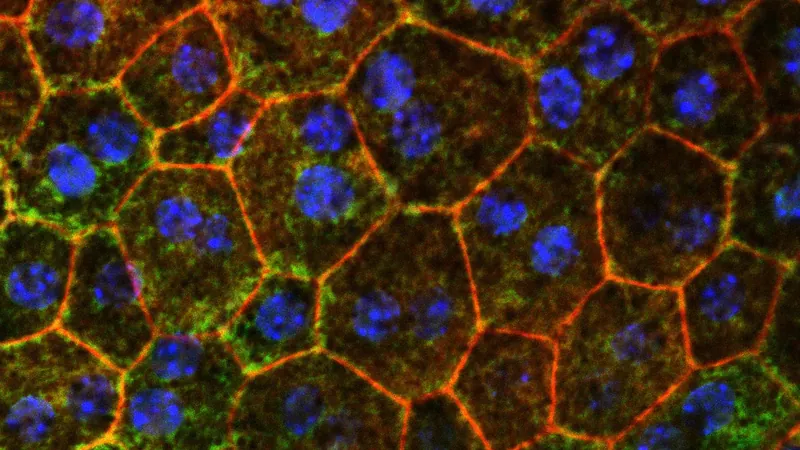
This Groundbreaking Molecule Could Transform Eye and Heart Health!
2025-06-25
Author: Mei
A Revolutionary Discovery for Vision and Heart Health
Recent groundbreaking research has unveiled a molecule named apolipoprotein M (ApoM) that holds incredible potential in combating age-related macular degeneration (AMD) and even certain heart failures linked to cholesterol issues. By enhancing the levels of ApoM in the bloodstream, scientists believe they can rectify the problematic cholesterol processing that leads to cellular damage in crucial organs, particularly the eyes.
The Fight Against Age-Related Macular Degeneration
Published on June 24 in the prestigious journal Nature Communications, the study led by Dr. Rajendra S. Apte from WashU Medicine shines a light on a critical unmet clinical need in AMD treatment. Existing therapies only help advanced stages of the disease and fail to reverse it. However, increasing ApoM levels could potentially prevent AMD entirely, allowing individuals to retain their vision as they age.
Unveiling the Connection Between Cholesterol and Eye Health
AMD manifests through the accumulation of cholesterol-rich deposits beneath the retina, which trigger inflammation and the gradual deterioration of central vision. In its dry form, it can lead to geographic atrophy, associated with neurodegenerative conditions like Alzheimer’s. As the disease progresses to its wet form, abnormal blood vessel growth can significantly damage vision. Finding effective treatments is essential given that the damage becomes irreversible in advanced stages.
ApoM: A Guardian Against Diseases of Aging
Research reveals that decreased levels of ApoM, which decline with age, are connected to the dysfunctional cholesterol metabolism that underlies both AMD and heart diseases. In patients with macular degeneration, ApoM levels were notably lower compared to healthy individuals, and similar results were observed in heart failure patients.
Promising Results from Mouse Models
In a series of experiments, researchers enhanced ApoM levels in mouse models through genetic modifications and plasma transfers. The outcome was impressive—with signs of improved retinal health, better functioning of light-sensing cells, and a notable reduction in cholesterol deposits. ApoM appears to kickstart a signaling pathway that efficiently breaks down cholesterol, helping maintain cellular health.
Strategizing Strategies for the Future
Drs. Apte and Ali Javaheri are now collaborating with Mobius Scientific, a WashU startup, to explore new treatment avenues based on their findings. Their research highlights an intriguing connection between retinal and heart cells, both vulnerable to low ApoM levels, suggesting that boosting ApoM could benefit both organs.
The Road Ahead: A Bright Future for Eye and Heart Health
With continued research and potential treatment solutions on the horizon, this groundbreaking work not only illuminates the path toward preventing vision loss but also extends hope for addressing significant heart health concerns, paving the way for healthier aging for millions.



 Brasil (PT)
Brasil (PT)
 Canada (EN)
Canada (EN)
 Chile (ES)
Chile (ES)
 Česko (CS)
Česko (CS)
 대한민국 (KO)
대한민국 (KO)
 España (ES)
España (ES)
 France (FR)
France (FR)
 Hong Kong (EN)
Hong Kong (EN)
 Italia (IT)
Italia (IT)
 日本 (JA)
日本 (JA)
 Magyarország (HU)
Magyarország (HU)
 Norge (NO)
Norge (NO)
 Polska (PL)
Polska (PL)
 Schweiz (DE)
Schweiz (DE)
 Singapore (EN)
Singapore (EN)
 Sverige (SV)
Sverige (SV)
 Suomi (FI)
Suomi (FI)
 Türkiye (TR)
Türkiye (TR)
 الإمارات العربية المتحدة (AR)
الإمارات العربية المتحدة (AR)